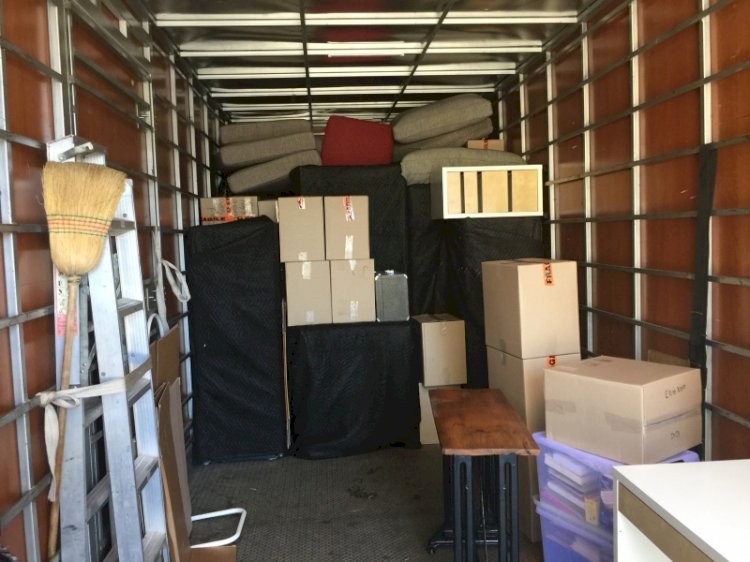Moving Company: How to Choose the Right One for Your Relocation Needs
When choosing a professional moving company, it's important to do your due diligence to ensure you're working with a reputable and reliable business.

Introduction: Moving Company or DIY?
When it comes to relocating, one of the most important decisions you'll make is whether to hire a moving company or attempt a do-it-yourself move. With so many moving companies out there, it can be overwhelming to find the perfect fit for your needs. This comprehensive guide will help you navigate the process, from researching and comparing professional movers to understanding moving quotes and costs. By the end of this article, you'll feel confident in choosing the right moving company for your relocation needs.
1. Types of Moving Companies-
There are various types of moving companies that cater to different needs. Some of the main categories include:
a. Local Movers: These companies specialize in short-distance moves, typically within the same city or state. They are ideal for those relocating to a nearby neighborhood or town.
b. Long-Distance Movers: Long-distance movers handle interstate or cross-country moves. They have the necessary equipment and expertise to safely transport your belongings over long distances.
c. Full-Service Movers: Full-service moving companies offer a range of services, from packing and loading to transportation and unloading. They can also provide packing supplies and storage solutions, making your move as hassle-free as possible.
d. Specialty Movers: Specialty moving companies focus on specific types of moves, such as transporting valuable artwork, pianos, or other delicate items that require special handling.
2. How to Research and Compare Moving Companies-
When choosing a professional moving company, it's important to do your due diligence to ensure you're working with a reputable and reliable business. Here are some steps to follow:
a. Get Recommendations: Ask friends, family, and coworkers for recommendations of moving companies they've had positive experiences with.
b. Read Online Reviews: Check out reviews on websites like Yelp, Google, and the Better Business Bureau (BBB) to get a sense of the company's reputation.
c. Verify Licensing and Insurance: Ensure the moving company is licensed and insured. For long-distance moves, check if the company has a USDOT (U.S. Department of Transportation) number.
d. Compare Multiple Quotes: Obtain at least three moving quotes from different companies to compare costs and services.
e. Ask Questions: Don't be afraid to ask questions about the company's experience, equipment, and policies. This will help you get a better understanding of their services and capabilities.
3. Understanding Moving Quotes and Costs-
Moving quotes can be confusing, but it's essential to understand the various costs involved in your move. Here are some factors that can affect your moving costs:
a. Distance: The further you're moving, the higher your moving costs will be. Long-distance moves typically have higher transportation costs.
b. Size and Weight of Your Belongings: The more items you have and the heavier they are, the more expensive your move will be. Some companies charge based on the volume of your items, while others charge by weight.
c. Packing Services: If you choose to have the moving company pack your belongings, this will add to your overall costs.
d. Additional Services: Some companies offer additional services such as disassembling and reassembling furniture, storage solutions, or specialty item handling. These services usually come at an extra cost.
4. Packing and Storage Services-
Many moving companies offer packing and storage services to make your move as seamless as possible. Here are some of the benefits of using these services:
a. Save Time and Energy: Packing can be time-consuming and exhausting. By hiring professionals, you can focus on other aspects of your move.
b. Proper Packing Techniques: Professional movers have the expertise to pack your belongings safely and securely, reducing the risk of damage during transit.
c. Storage Solutions: If you need temporary storage for your belongings, many moving companies offer short-term or long-term storage options.
5. Moving Tips for a Stress-Free Experience-
Here are some moving tips to ensure your relocation goes smoothly:
a. Start Planning Early: Create a moving timeline and checklist to help you stay organized and on track.
b. Declutter Before Your Move: Donate, sell, or dispose of items you no longer need or want to reduce the volume of belongings you need to move.
c. Label Boxes: Clearly label your boxes with their contents and the room they belong in to make unpacking easier.
d. Create a Moving Day Essentials Box: Pack a box with essentials like toiletries, clothes, and important documents to keep with you during your move.
e. Stay Flexible: Be prepared for unexpected challenges and remain flexible throughout the moving process.
6. Conclusion: The Benefits of Hiring a Professional Moving Company-
In conclusion, hiring a professional moving company can save you time, energy, and stress during your relocation. By researching and comparing different companies, understanding moving quotes and costs, and utilizing packing and storage services, you can find the perfect moving company to meet your needs. By following these moving tips, you can ensure a smooth and stress-free moving experience, allowing you to focus on settling into your new home.
Share
What's Your Reaction?
 Like
0
Like
0
 Dislike
0
Dislike
0
 Love
0
Love
0
 Funny
0
Funny
0
 Angry
0
Angry
0
 Sad
0
Sad
0
 Wow
0
Wow
0


















